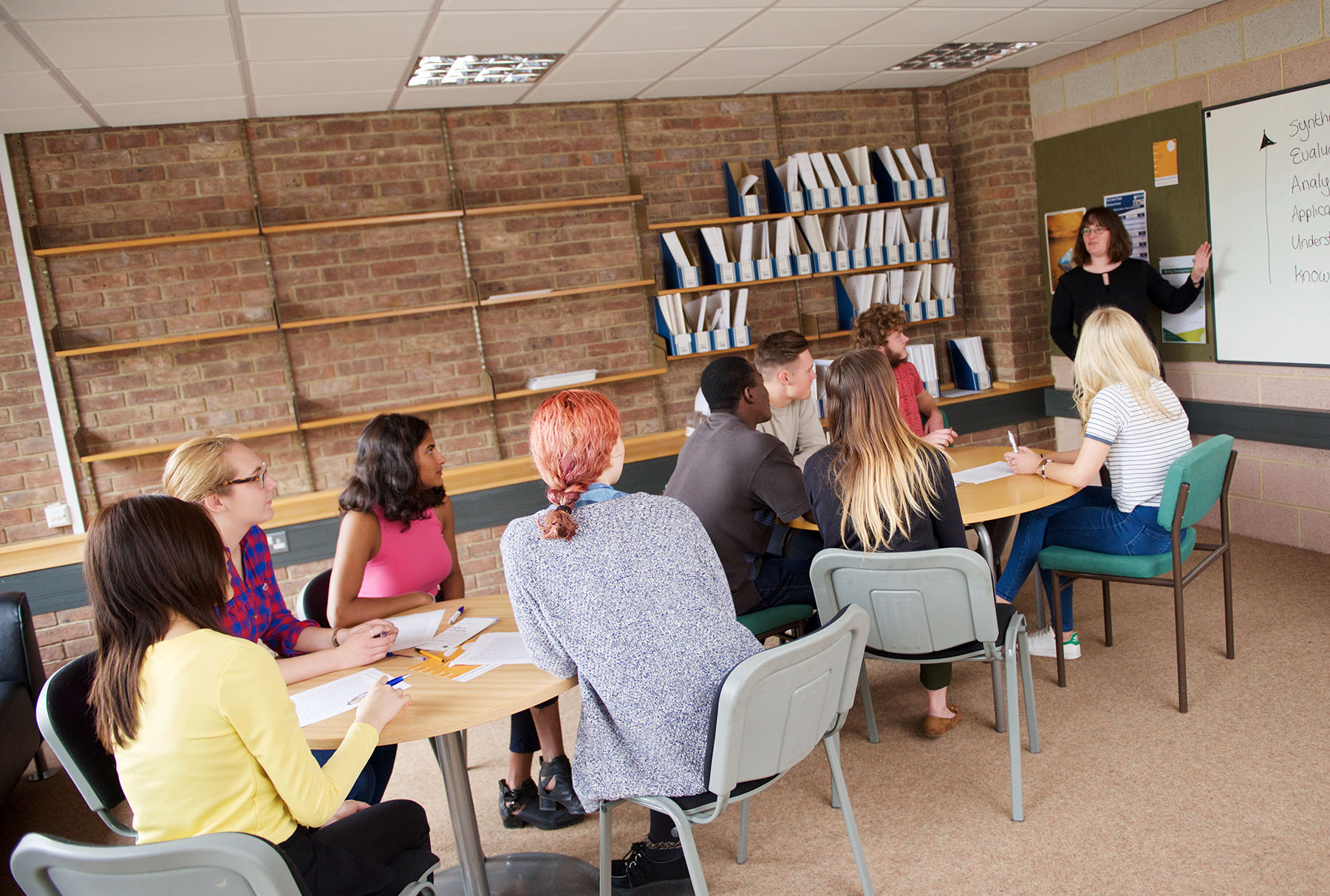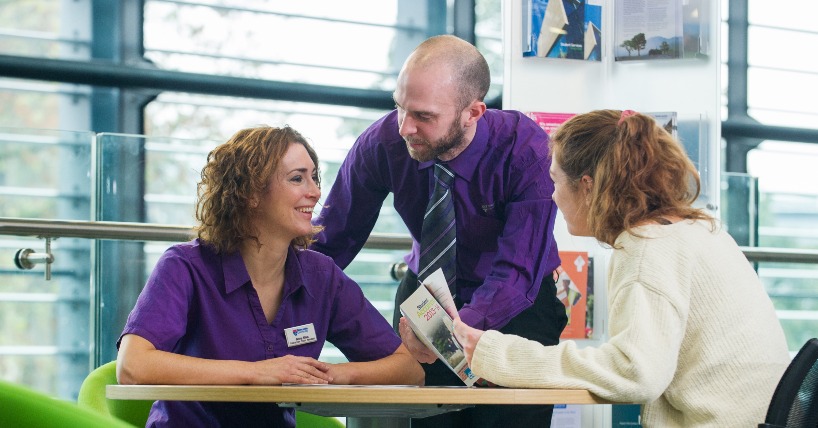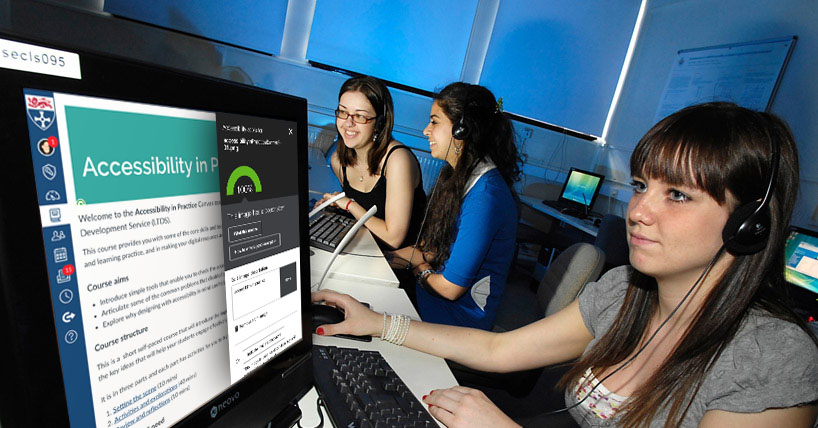Universal Design for Learning
NEW: A vision for education and skills at Newcastle University: Education for Life 2030+
Universal Design for Learning (UDL): Supporting all learners
Universal Design for Learning (UDL) is a framework that acknowledges the wide variety of students’ abilities, backgrounds, and learning preferences by providing multiple ways for learners to engage with course materials. Rather than relying on retrofitting or individual accommodations, UDL advocates for designing inclusive learning experiences from the start. This means anticipating diverse needs when developing lectures, selecting resources, or planning assessments.
By embedding accessibility and flexibility at the blueprint stage, UDL helps shift responsibility away from individual learners. Instead, educators recognise that learner diversity is always present and address it by building programmes and modules that accommodate a broad range of learners, reducing the need for continuous adjustments down the line.
When UDL principles guide curriculum design, classroom instruction focuses on universal access, decreasing reliance on external support services. While it is crucial to acknowledge that some students with disabilities will still require personalised support, most can benefit directly from inclusive classroom practices (Fovet, 2017). This results in fewer students needing to register for additional assistance and ensures that everyone can demonstrate what they know—without facing unnecessary barriers unrelated to the academic content.
UDL Principles
Inclusive education environments are barrier-free: applying the universal design for learning strategy helps to remove physical, sensory, and cognitive barriers to learning and ensure accessibility of inclusive education for all learners.
UDL strategies and practical tips
Universal Design for Learning (UDL) is built on three interrelated principles: multiple means of engagement, multiple means of representation, and multiple means of action and expression. Rather than prescribing one-size-fits-all strategies, these principles serve as flexible lenses that guide inclusive teaching across diverse settings—from lecture theatres to art studios.
In UDL, it is important to plan ahead and integrate accessibility features in the programme or module design stage: when creating syllabi, choosing materials, or designing assessments.
It is also important to stress that while UDL reduces the need for retrofitted accommodations, continue to work with Student Health and Wellbeing to support students requiring individualised approaches.
There are many practical ways to implement UDL. Although many of these strategies listed below are crucial for students with disabilities, they also enhance learning for everyone.
Assessment
An area that has garnered particular attention in UDL is assessment, closely tied to the principle of providing multiple means of action and expression. UDL promotes flexibility in how students can demonstrate their understanding, encouraging educators to offer diverse options such as written essays, presentations, portfolios, or multimedia projects. This approach not only accommodates varied learning preferences but also fosters creativity and deep engagement.
In addition, formative and authentic assessment play a vital role in a UDL framework.
Here are some tips on implementing UDL principles redesigning your assessment.
- Wherever possible, create varied assignment options. Allow students to submit work in text, audio, or video form, to cater to diverse strengths.
- Include formative assessment: Low-stakes quizzes, essay/report plans, reflective journals, online polls, or peer feedback sessions can all be used to gauge student progress and understanding, helping them grow and succeed at each step. Use data from formative assessment to adjust your instruction.
- Break large projects into smaller milestones with regular check-ins to keep students focused and reduce overwhelm.
- Encourage peer collaboration and feedback through structured group tasks or peer reviews to foster social engagement and deeper understanding.
- Make sure to communicate how the assessment aligns with the programme and module learning objectives. Share the clear marking rubrics with students.
See also: Our Assessment and Feedback guides
Digital technologies
The COVID-19 pandemic underscored the need for rapid adaptations in both instruction and assessment. UDL’s emphasis on flexibility proved invaluable, enabling educators to use technology platforms, for example for alternative assessment formats—such as online discussion boards, recorded presentations, or digital portfolios—and to leverage accessibility features like automatic captions and text-to-speech tools.
With these benefits in mind, here are some tips on implementing UDL principles when using digital technologies:
- Provide electronic copies of handouts so students can reformat them or use assistive tools like text-to-speech.
- Use built-in accessibility features: Encourage students to use Immersive Reader, text-to-speech tools, and screen readers in platforms such as Microsoft Teams. Offer options in accessing materials, and make sure that your content is accessible. Get familiar with our Digital Accessibility guides, to know what features are available, and how to make the most of them - in the most efficient way.
- Use accessible fonts and clear layouts (sans-serif, high contrast) to improve readability.
- Record lectures or demonstrations (e.g., via ReCap) and make them available, benefiting students who need to revisit the material.
- Provide captions and transcripts for audio and video to aid Deaf or hard-of-hearing students, non-native speakers, and those in noisy environments.
- Incorporate frequent, low-stakes checks for understanding: Use tools like Kahoot or learning management system quizzes to gather immediate feedback and tailor your teaching accordingly.
Non-traditional learning spaces
UDL has predominantly been explored in undergraduate classrooms, yet it holds great potential for a wide range of non-traditional learning environments, including science labs, language labs, art studios, trades workshops, and outdoor classrooms. These spaces offer unique challenges and opportunities for inclusive design.
Below are some practical ways to apply UDL in various non-traditional environments.
Laboratories and Workshops
- Provide step-by-step instructional videos, virtual lab tours or simulations before lab sessions, allowing students to review techniques at their own pace.
- Offer multiple ways of recording data (digital spreadsheets, voice recordings, or tactile charts) to accommodate diverse accessibility needs.
- Ensure any necessary adaptations (e.g., specialised grips, accessible workstations) are available for safe, inclusive physical manipulation of equipment.
- Build in collaborative or paired tasks to reduce physical and cognitive demands on any one individual.
- Read our guides to laboratory teaching, and self-enrol in the Laboratory teaching Canvas course.
Language Labs
- Use varied media for language practice (audio clips, videos, interactive software, conversation groups) to match learners’ preferences.
- Allow multiple formats for demonstrating progress—recorded speech samples, live conversations, or written reflections—to reduce anxiety around oral exams.
Art Studios
- Provide digital or alternative creative tools (e.g., graphic design software, digital painting programs) in addition to traditional materials.
- Offer flexibility in critique methods—such as written feedback, audio commentary, or one-on-one discussions—to accommodate different comfort levels.
- Encourage peer feedback using structured protocols that focus on learning objectives rather than a single “correct” method.
Fieldwork
- Conduct risk assessments and clearly communicate physical requirements. Where possible, offer adaptive equipment (off-road wheelchairs, portable seating, etc.).
- Vary modes of participation: some tasks can be done collaboratively, while others may be individual or self-paced.
- Provide clear visual and textual maps or guides for outdoor explorations; consider virtual tours or photo-based assignments for those who face barriers.
- Read our guides to fieldwork and field trips.
Support from Student Health and Wellbeing Service
Newcastle University’s Student Health and Wellbeing Service hosts a variety of resources, advice and policy documents about working with students with disabilities and/or specific learning difficulties. The service liaises with academic schools over students' support requirements and works with external agencies where appropriate.
Where individual adjustments are needed, Student Health and Wellbeing can provide advice on the most appropriate provision and will liaise with other university services (e.g. the Library, NUIT, Estates, Accommodation) to ensure that students have access to the facilities and support they require. Advisers from the service work with individual students to define Student Support Plans (SSPs). If colleagues have specific questions relating to individual students, they should contact the adviser who authored the SSP or with disabilityadvisor@newcastle.ac.uk.
SWS disseminates information through their website and have liaison points in each school.
Supporting students
FIND OUT MORE
Useful articles
UDL Guidelines (CAST)A tool used in the implementation of Universal Design for Learning.
Use the Top 5 UDL Tips for Learning Environments as a tool to reflect on your learning environment.
How can educators design learning environments that support the growth and development of purposeful, motivated learners?
Webinar resources and recording from the Future Teacher series.
AdvanceHE subject based resources (2011)
An article from the Learning and Teaching blog.
Kevin Johnson, describes the Supportive Practice Tool in this 6 minute lightning talk.
FIND OUT MORE
Resources for your students
Services to support staff and student wellbeing.
Advice on developing your academic skills and information about where you can go for support.
Click and collect, alternative formats, study rooms, and height adjustable desks.
Newcastle University recognises the specific needs and challenges student carers can face.
Bibliography
CAST (2024). Universal Design for Learning Guidelines version 3.0 [graphic organizer]. Wakefield, MA: Author. Retrieved from https://udlguidelines.cast.org/
CAST (2020). UDL Tips for Assessment. Wakefield, MA: Author. Retrieved from https://www.cast.org/resources/tips-articles/udl-tips-assessments/.
Fovet, F., & Mole, H. (2013). From disabilities to mainstream class: How the tools of a minority address the aspirations of the student body at large. Collected Essays on Learning and Teaching, 6, 121–126. doi:10.22329/celt.v6i0.3762
Meyer, A., Rose, D. H., & Gordon, D. T. (2014). Universal design for learning: Theory and practice. CAST Professional Publishing.
Navaitienė, J., & Stasiūnaitienė, E. (2021). The goal of the universal design for learning: Development of all to expert learners. In A. Galkienė & O. Monkevičienė (Eds.), Improving inclusive education through universal design for learning (Vol. 5, pp. 23–56). Springer.



